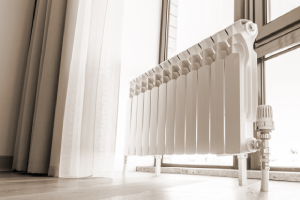Replacement of a radiator
How long do radiators need to be replaced?
Replacement of a radiator. Radiators are usually one of the most reliable and long-lasting features of any property. But years of frequent use will result in inevitable wear. This can manifest itself in your radiators that are not working. Or less obvious but still problematic, irregular or insufficient heat throughout the unit. If you are sure that your hot water supply is working properly. Nevertheless, your radiators are still not working as expected, it may be time to replace the radiators.
Modern radiators are more effective, efficient and economical, and constant developments in manufacturing technology mean that there is now a wider range of designs than ever before. If you are looking for an easy way to save on your energy bill, replacing old radiators is one of the safest ways. If you are asking “how often should radiators be replaced?”, There is no easy answer, but a general guideline is anywhere between fifteen and twenty. If your radiators are approaching this age range, it’s worth being aware of how they perform.

Why replace the radiators | Replacement of a radiator
For granted as a feature of your home, often take radiators. That they should perform their duties without any extra care or attention. If you have recently moved into a property, it is possible that for decades have installed your radiators. Without receiving adequate maintenance. If you decide to renovate or remodel your home, you may be tempted to ignore your radiators and focus on other parts of your property. However, unless you’re moving to a new build, you should at least consider replacing your radiators. This allows you to switch to a more efficient set of radiators while also choosing units that match the rest of the look of your property.
There are a few key points to consider before replacing your radiators. You may be tempted to install larger or more numerous radiator units, but you’ll need to make sure your boiler can handle the extra workload. It is quite common for people to replace their boilers, which require more obvious maintenance and repair, but to leave their original radiators in place. Although they usually have a longer life, radiators cannot last forever and all the benefits of your new boiler can disappear. If outdated radiators used to supply water.
Problems with the radiator
In most cases, radiator problems are not the result of a single catastrophic event, but a gradual build-up. Rust, corrosion and magnetite clogging can take years to become noticeable problems. Resulting in cold spots or a wider lack of efficiency throughout the heating system. In combination with regular radiator bleeding, you can keep your radiators running for many years. Unfortunately, even careful maintenance will hardly keep your radiator in perfect condition forever. Whether you are replacing a faulty drive or trying to upgrade it for economic reasons. You now have a huge number of options available.
The introduction of a chemical inhibitor in the heating system should at least decrease the speed and the effect of corrosion on the heating system. Inhibitors are liquid formulas, readily available from most do-it-yourself suppliers, and are usually fairly simple to add to central heating. For best results, add a fresh inhibitor liquid twice a year, which recommends for it. Although, inhibitors can be very effective in protecting your radiators from wear. They will not be able to have a significant impact. If it has already severely damaged it your units.
Improvements in radiators
While there have been many innovations in terms of radiator design, there are just as many improvements in performance. Production quality has also progressed significantly, leading to superior fusion both inside and outside the unit. It is easy to assume that radiators produced decades ago are less efficient. But studies have shown that a new radiator can be up to double the efficiency of even a twenty-year-old equivalent. This improvement is largely due to modern designs that increase surface area and improve water circulation to minimize energy waste. The units are generally smaller, consume less energy, and also produce equal or greater heat output.
It’s entirely possible that you don’t want radiator replacement for performance reasons and are more interested in a visual upgrade. If improving the aesthetics of your radiator focuses you on, there are countless designs to choose from. Modern design and manufacturing technology have resulted in thinner, more efficient radiators available in a more diverse range of shapes and sizes than ever.
While replacing the radiator may seem like a relatively simple procedure. It can be complicated and time-consuming. To avoid further problems, it is useful to choose new radiators. That have the connectors in the same position as the previous units.
Contact a plumber in Southampton today for 24 hour radiator replacement service. Call 02382280083.
